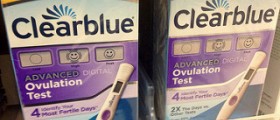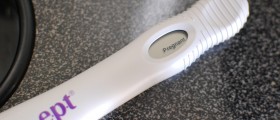If you want to know how to get pregnant fast, keep reading because we will give you some advice on that issue in this article.
Tip No 1
Sex. Have it at least three times a week, because that is the best and the most natural way to get pregnant. Couples made a big mistake by having sex only when the woman is ovulating. Since, women often make a mistake about calculating the ovulation period and since our body doesn’t work like a Swiss clock, having sex three times a week, a woman can increase her chances of getting pregnant.
Tip No 2
If you want to get pregnant fast, it is recommended to use ovulation prediction kit or fertility monitor. Other methods of calculating ovulation can be really confusing and women can often make a mistake by calculating the wrong date. The instructions for the prediction of ovulation and for the use of the kit is easy, and it leaves no space for a mistake. Clear Blue Easy monitor is also an effective tool for women who want to conceive fast, as with it changes in LH can be read.

Tip No 3
In order to become pregnant, the best time for having sex is before ovulation. After ovulation, a female egg can live for 24 hours, and sperm semen can live for three to five days. So, if you have sex before ovulation, the sperm that is inside of you can live a few more days than the egg.
Tip No 4
Don’t use the Calendar method as the only tool for forecasting the period of ovulation, as it is based on a 28 period menstrual cycle, and due to the calendar, women calculate that the pest period for having sex is a 14th day after the end of a period. As we are all different, the time of ovulation isn’t the same for every woman, so use other more precise methods to determine ovulation day.
Tip No 5
Don’t give too much notice to fertility charting alone, because by the time you can see when your ovulation is on the chart, it is already gone.
Tip No 6
Before deciding on having a baby, consult a doctor, since he can do a thorough check and see if you have some disease that you weren’t aware of.
Tip No 7
Restrain from alcohol, drug use and anything else that is damaging your health.
Tip No 8
Enjoy in sex, don’t do it just for the purpose of getting pregnant.
Tip No 9
Have sex in positions that will promote the sperm to stay in your vagina longer. Missionary position is a good position for that purpose.
Tip No 10
Trying to get pregnant can be a burden, and it is all question of time when you and your partner will succeed in that.
According to statistics, one year is necessary in order to get pregnant.
- The best place to start the path to parenthood is in the office of one’s regular doctor. A routine check of both the male and female partner can help determine potential health issues that could prevent or complicate a pregnancy, as well as proposed potential lifestyle changes that increase a couple’s odds. Women should visit their OB/GYN prior to trying to conceive to determine the state of their reproductive health and to discuss any family history of infertility or any concerns about other health conditions that could cause potential infertility.
- A preconception visit with an OB/GYN is also an opportunity to discuss the timeline for discontinuing birth control. Certain hormonal birth control methods, like Depo-Provera shots or oral contraceptive pills, can affect hormone levels and make pregnancy harder to achieve for some time after use has been discontinued. It’s estimated that it can take up to 18 months for the average couple to attain pregnancy after Depo-Provera discontinuation and an average of 4-6 months after oral contraceptive pills are discontinued. A better understanding of what previous birth control practices mean for conception can be helpful to couples as they endeavor to start their families.
- There is little evidence that certain sexual positions, having intercourse at a certain time during the day or maintaining certain positions after intercourse will improve the likelihood of becoming pregnant. Research does not support the belief that having intercourse more than every 2-3 days helps improve the chances of pregnancy (but it doesn’t hurt either). Additionally, a woman’s climax may help transport sperm, but there is little evidence to show that sexual climax improves the chances of pregnancy.
- Menstrual cycle lengths vary for a number of reasons but generally range from 21-35 days. The average cycle is 28 days. Ovulation, or the release of the egg from the ovaries, typically occurs about two weeks before the start of a menstrual period. For a woman with the typical 28-day cycle, ovulation would be expected on days 13 through 15. The egg is only viable for 12-24 hours after leaving the ovary, and male sperm is typically viable for up to five days after ejaculation. In theory, having unprotected intercourse the day of, or up to two days prior to, ovulation increases the likelihood of pregnancy.
- Do start taking prenatal vitamins. A large body of research shows that women who take folate-containing vitamins or folic acid supplements prior to conceiving and through the course of their pregnancy can reduce the risk that their offspring will be born with birth defects.
- Do continue moderate exercise. Moderate exercise looks different for every individual, based on their fitness level and fitness goals. Exercise can help manage stress, which can interfere with female ovulation, and help men and women manage their weight, which can impede fertility.
















Your thoughts on this
Loading...